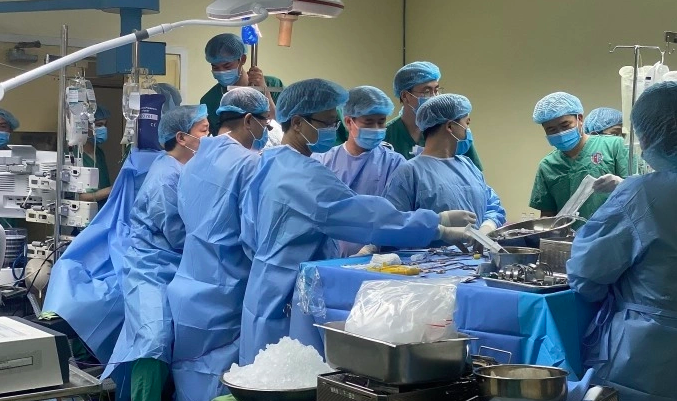The proposal comes as the need for organ transplants is substantial, yet the rate of organ donation from deceased and brain-dead donors in Vietnam remains low. Since 1992, over 9,000 organ transplants have been performed nationwide. Of these, only 6% of organs came from brain-dead donors, with the remainder coming from living donors.
This contrasts with the global trend, where organs from brain-dead donors constitute the majority of transplants in many countries. Several Asian nations, such as China, South Korea, and Thailand, have seen a rapid increase in registered organ donors and brain-dead donations in recent years.
As of 31/5, over 132,062 people in Vietnam have registered to donate organs and tissues after death or brain death. According to the ministry of health, while this number is still modest, it reflects a positive shift in public awareness. Notably, after prime minister Pham Minh Chinh launched an organ donation campaign, registrations increased by over 46,000.
Globally, national organ donation days have played a vital role in raising awareness, changing perceptions, and encouraging organ donation registration. The World Health Organization (WHO) has designated august 13 as world organ donation day. Many countries have also established their own national organ donation days, including the US on february 14, Europe on october 12, Germany on june 4, Spain on june 5, China on june 11, India on august 3, and South Korea on september 9.
"Vietnam needs to establish an official organ donation day to maintain public and media attention on this important issue," the ministry of health stated, proposing to the prime minister that may 20 be designated as Vietnam's national organ and tissue donation day.
The ministry of health chose may 20 to commemorate the first successful kidney transplant from a brain-dead donor in Vietnam, performed at the 103 military hospital in 2010. This milestone laid the groundwork for developing a system for coordinating and receiving donated organs and tissues from brain-dead donors in Vietnam.
 |
Doctors perform an organ retrieval in Quang Ninh. Photo provided by the hospital |
Doctors perform an organ retrieval in Quang Ninh. Photo provided by the hospital
The national organ and tissue donation day will serve as a platform for public awareness campaigns, helping people understand organ and tissue donation after death or brain death. This will contribute to overcoming spiritual, cultural, and societal barriers, which are among the reasons for the low organ donation rates in Vietnam.
This day will also honor the noble act of organ donors, express gratitude to medical professionals and the community for their support, and further promote organ and tissue donation registration throughout society.
Previously, only five central hospitals (Viet Duc Friendship, 108 Military Central, 103 Military, Hue Central, and Cho Ray) were authorized to perform organ transplants. Now, the ministry of health has granted licenses to over 30 hospitals to carry out this procedure.
Le Nga












